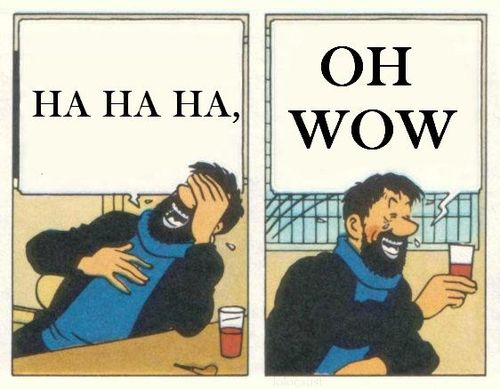- Joined
- Feb 3, 2010
- Messages
- 1,981
- Reaction score
- 499
In response to the quote below (tl;dr GPA and MCAT are too heavily weighted, so says the president of the AAMC)
What do you guys think would happen if there was a minimum cut off on the MCAT (like 75th percentile or equivalent of a 32 or whatever you want to make up), and beyond that, you applied based on other qualities and experiences? Assuming premeds didn't start a mutiny, anybody care to speculate on what would make a top applicant? Anybody think it's a good idea?
I was considering an inflammatory argument in favor of it just to troll everybody, but I'm not that motivated at the moment. Still, I'd be curious to see what SDN has to say.
Inb4 mbuto pass me the baby
What do you guys think would happen if there was a minimum cut off on the MCAT (like 75th percentile or equivalent of a 32 or whatever you want to make up), and beyond that, you applied based on other qualities and experiences? Assuming premeds didn't start a mutiny, anybody care to speculate on what would make a top applicant? Anybody think it's a good idea?
I was considering an inflammatory argument in favor of it just to troll everybody, but I'm not that motivated at the moment. Still, I'd be curious to see what SDN has to say.
Ahhhh med2006, unsubstantiated blanket statements.... Where would we be without them?
Jorden Cohen, the president of AAMC is with you on accepting more non-traditional students. Give this excerpt a read...
November 4, 2001
Jordan J. Cohen, M.D., President of the Association of American Medical Colleges (AAMC), issued the following statement, today, at the Association's 112th Annual Meeting in Washington, D.C.:
The Admissions Process
"What about the way we pick students for admission? My concern here is the imbalance that currently exists in how we convey to applicants the selection criteria we use. I'm referring, of course, to our tendency to under-emphasize, because they are harder to measure, the personal characteristics we are seeking in our applicants, and to over-emphasize the more easily measured indices of academic achievement.
"I know how tough this issue is. And please don't misunderstand me; in no way am I suggesting that native intelligence and academic prowess are anything less than essential for success in medical school, or for becoming an effective physician or scientist. What I am suggesting, however, is that our admission processes do not project to prospective applicants the degree to which we value, in addition to GPAs and MCAT scores, those other essential attributes we prize: altruism, fervor for social justice, leadership, commitment to self sacrifice, empathy for those in pain.
"That many idealistic students do make it through the process, despite the distorted signals we send them about what we are looking for, is no guarantee that sufficient numbers will continue to do so going forward. If more such intelligent and dedicated idealists were to perceive that we would give as much weight to what's in their hearts as to what's in their heads, a career in medicine would no doubt attract them strongly. As it is, I'm persuaded that many don't perceive this balance in our selection criteria, and turn away convinced that medicine is for grade-grubbing Philistines but not for them.
"To balance the strong message we send about the importance of grades and test scores with more visible evidence of our co-equal interest in humanistic attributes, let me offer six ideas for you to consider:
"1. Use MCAT scores and GPAs only as threshold measures. Rather than giving more weight to higher scores, why doesn't each school decide for itself, from data available from its previous students, what level of GPA and MCAT performance is sufficient for predicting success in clearing the high academic hurdles of medical school -- and leave it at that. We would send a powerful signal to those intelligent idealists who are currently eschewing medicine if they knew that, once having met the academic achievement threshold, they would be evaluated solely on the basis of their humanistic qualities, their penchant for serving others, their leadership abilities, and so on.
"2. Even more daring, how about beginning the screening with an assessment of personal characteristics and leave the GPAs and MCAT scores 'til later. Rather than looking first for reasons to reject an applicant -- like evidence of a lackluster start in college, or a bad semester, or a C in an organic chemistry, or a "7" on an MCAT subtest -- why not look first for reasons to accept an applicant - like evidence of deep-seated social awareness, of having triumphed over adversity, of personal sacrifice for the benefit others - and only then consider the statistical predictors of mastering our challenging curriculum. Approaching their task in this way, admission committees might well find many instances in which truly compelling personal characteristics would trump one or two isolated blemishes in the academic record.
"3. Look even more favorably than you do now on the more mature applicants, those who chose some other field at the end of college, but who awakened several years later to medicine as their true calling. Such students often manifest a depth of motivation that not only predicts success as future physicians, but also provides inspiration to their fellow students.
"4. Stop using the average MCAT scores and GPAs of our matriculants as if they were valid measures of the relative quality of our schools. Take a look at the devastating critique of the U.S. News & World Report's rankings of the "best" medical schools in this month's Academic Medicine and see if you don't agree with what the authors have to say. In accepting without objection the use of such misleading measures as average MCATs and GPAs, let alone in ballyhooing them in our own promotional materials, we reinforce the public perception that they are, indeed, our principal criteria for admission.
"5. Use past experience to improve our ability to spot the truly outstanding prospects. As a general rule, it doesn't take long for a consensus to emerge among faculty and staff about who among each entering class of students are destined to be the best, most caring, most compassionate physicians. They are the ones who win the humanism awards, who tutor their classmates, who are elected class representatives, who are the pacesetters for student-initiated community service activities, and so on. Why don't we look back at those students' credentials at the time of admission and see if we can find some common characteristics that might be helpful in sharpening our ability to identify such stars among future applicants. And let's use even more of those star students as recruiters and as full-fledged members of our admission committees.
"6. Help us devise better tools for evaluating students' personal characteristics. It's too easy to assume that the so-called soft qualities we're looking for are beyond our ability to assess any more accurately than we do with our present crude measures. I just don't believe that. But we'll never know for sure unless we try. For starters, I have directed the AAMC staff to see what we can do to develop better tools, and I urge all of you to give thought to this tough problem. Not only because we may actually succeed in improving our selection process, but also because there are surely many more dedicated and intelligent idealists out there who would recognize our efforts to seek better measures of character traits as a strong signal that we want them as colleagues."
Doesn't include any youngin bashing does it? Just acknowledges the various attributes a variety of people bring to medicine. Maturity is certainly a desirable quality for those entering medicine. I applaud you and Dr. Cohen for recognizing it as such.
What you didn't need to do was say that those who have chosen medicine at a younger age than you are less desirable canidates. Maturity is not just a function of age. It is also not the only desirable characteristic of a good physician. Whitewashing the field by saying that "most" people at 22 are "not that mature" and unworthy of admission as compared to their older counterparts is simplistic and, dare I say it, immature.
Inb4 mbuto pass me the baby



 But who knows, it's so early on. Hopefully the results of these changes will be made available somewhat soon.
But who knows, it's so early on. Hopefully the results of these changes will be made available somewhat soon.
 Thanks for taking the time to answer our questions from a clinician educator's/resident's perspective...
Thanks for taking the time to answer our questions from a clinician educator's/resident's perspective...